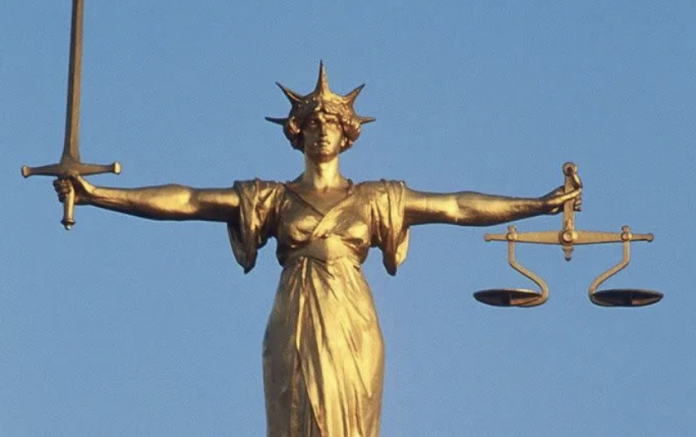(2024) Bishop’s Disciplinary Tribunal, Diocese of Oxford
This case would be of small legal interest but for an ironic twist that occurred during the Tribunal hearing.
Reverend Peers was accused of breach of confidentiality concerning his then ecclesiastical superior, who was himself subject to disciplinary proceedings at the time. He was ably represented by Mr Justin Gau, barrister, chancellor and vicar-general, whose name has been mentioned elsewhere in this blog.
The complaint against Peers was initially dismissed by the Bishop at the preliminary stage (para 7). This suggests that the allegations, even if factually true, could not amount to misconduct under the Clergy Discipline Measure 2003. (See blogpost ‘A Bishop’s Disciplinary Tribunal’, filed below).
However, the 2003 Measure confers jurisdiction on the President of Tribunals to set aside the Bishop’s dismissal of a complaint, if satisfied that the Bishop’s decision was ‘plainly wrong’ (s.11(4)). The Deputy President exercised this jurisdiction to reinstate the complaint, and thereby allow it to proceed to a Tribunal hearing.
As noted in our earlier blogpost, the complainant in a tribunal case is usually a Church official, not the clergyman’s original accuser. The Clergy Discipline Code of Practice states that ‘where the archdeacon is satisfied that there is a case of misconduct [i.e a case to answer], they should bring the case, and not leave it to the private individual concerned’ (para 52).
In this case, however, no archdeacon or other Church official was found to bring the complaint. They evidently shared the Bishop’s opinion that Peers did not have a case to answer. So, unusually, it was left to ‘the private individual concerned’, Mrs Gadd, Peers’ accuser, to bring the complaint herself.
The Tribunal dismissed Mrs Gadd’s complaint categorically and convincingly, and cleared Peers of any blameworthy conduct. Its decision strongly suggests that it was the Deputy President, and not the Bishop, who was ‘plainly wrong’ about the case. The complaint should never have been allowed to proceed as far as a Tribunal hearing.
The remarkable feature of the case is the Tribunal’s judgment on the complainant, rather than on the complaint itself. Having accused Reverend Peers of breach of confidentiality, Mrs Gadd found herself accused, in the Tribunal, of exactly the same thing! Perhaps Mr Gau believes that attack is the best form of defence.
The published decision relates that Mrs Gadd ‘was recalled briefly twice, to give evidence dealing with a breach [by her] of the confidentiality required under the CDM [Clergy Discipline Measure] process – she had provided confidential papers in this matter to 3rd parties, namely her husband and a person she turned to for informal advice’ (para 50).
Then the full extent of Mrs Gadd’s offence was revealed
‘it quickly became apparent that she had received significant input and advice from the earliest stages and throughout from 3rd parties unconnected with the CDM, and that she had extensively shared confidential information with them, through discussion of the issues or through actual provision of full sets of confidential papers …’.
In other words, Mrs Gadd, like countless other parties to legal proceedings, obtained advice and assistance of the kind that a solicitor might provide to a client, but from a friend or acquaintance instead.
Why should Mrs Gadd not do this? As mentioned, she had no Church official to help her with her complaint. The Tribunal quoted her as saying ‘I didn’t even know what a CDM was’. It even acknowledged that she faced ‘ several potentially challenging procedural hurdles that arose along the way’.
Nevertheless, the Tribunal suggested that Mrs Gadd’s conduct necessitated ‘immediate steps … to preserve the integrity of the hearing’ (para 59), but did not explain how her conduct had compromised that integrity in the first place.
The published decision contained no explicit threat of contempt proceedings, but warned darkly that ‘the matter [of breach of confidentiality] remains under review’.
One of Mrs Gadd’s confidants, evidently a man of spirit, ‘has not confirmed destruction of the documents in his possession, and disputes the basis for challenging his entitlement to hold the papers’.
The legal basis of the Tribunal’s position is indeed worth examining. The Tribunal asserted that ‘Clergy Discipline proceedings are, by default, private and confidential … The rules as to confidentiality are set out clearly in the Clergy Discipline Code of Practice and elsewhere (including the statutory guidance)’. It pronounced Mrs Gadd and her confidants to be ‘in breach of the Clergy Discipline Rules and the Statutory Guidance’ (para 56).
However, the Tribunal declined to give chapter and verse. Its animadversions of Mrs Gadd’s supposed breach have a character of bluster. They do not specify which rule, or rules, or which guidance she had contravened.
The Code of Practice devotes just 4 paragraphs to confidentiality (paras 306-309). Para 307 affirms that ‘Allegations of misconduct under the CDM are private and confidential … [confidentiality] extends to complainants, respondents and witnesses’. It adds that ‘written documents and material … save for legal representatives, should not be shared with 3rd parties’.
So Mrs Gadd would have been in the clear had she merely consulted a solicitor. But she consulted a lay adviser (or advisers), not a solicitor. Perhaps the Tribunal was correct to find her in breach.
However, the confidentiality of clergy discipline proceedings is further addressed by statutory guidance issued in 2021. It goes like this
Q: ‘Can I share documents with others, e.g witnesses that I may wish to call?
A: ‘Yes, documents such as the allegation of misconduct or answer can be shared with those who have a legitimate reason for seeing them. E.g legal professionals, witnesses, healthcare professionals or others providing support during the disciplinary processes’ (emphasis supplied).
The Code of Practice itself makes the obvious point that ‘complainants, especially where they are private individuals, may need help to make a written allegation and to prepare written evidence’ (para 60). As mentioned, even the Tribunal seemed to accept that Mrs Gadd was in need of such help.
It is therefore argued that Mrs Gadd was not in breach of the clergy discipline regime merely by seeking and obtaining needed support. Para 307 may seem to support the Tribunal’s position, if read in isolation. But para 307 should not be read in isolation. The Code of Practice and the Statutory Guidance, when read together, are clear that a complainant can seek advice and assistance from someone other than a solicitor, and can share documents with them.
Mrs Gadd could only have been in breach of the clergy discipline regime if her disclosure to 3rd parties had prejudiced the proceedings against Peers. For all its bluster, the Tribunal failed to identify any actual prejudice to its proceedings.
The Tribunal’s condemnation of Mrs Gadd raises a fundamental constitutional issue: why should she be bound by the clergy discipline regime at all?
It is, of course, perfectly reasonable for the Church of England to issue rules and guidance to its own officials and staff – bishops, archdeacons, registrars, the tribunal members themselves – and expect them to observe these. But Mrs Gadd was a private individual, not a Church official. This is the 21st century, not the 17th century. Archbishop Laud no longer lives in Lambeth Palace. Yet the Tribunal seemed to think that rules made by the Church are binding upon all the world. Who do these people think they are?
It is true that the Clergy Discipline Measure, like all Church Measures, has ‘the force and effect of an Act of Parliament’: Church of England Assembly (Powers) Act 1919, s.4. It is primary legislation. However, Church Measures are still supposed to respect ‘the constitutional rights of all His Majesty’s subjects’, including Mrs Gadd (cf 1919 Act, s.3(3)).
The 2003 Measure empowers the Church ‘to issue codes of practice and general policy guidance [i.e the ‘statutory guidance] to persons exercising functions in connection with clergy discipline’ (s.3(3)(b)).
Is a person like Mrs Gadd, who comes forward with an accusation against a clergyman, ‘exercising a function’ in connection with clergy discipline? It is argued that she is not. Codes of practice and guidance properly apply only to the Church officials who administer clergy discipline, not to the general public. The whole purpose of the clergy discipline regime, as of secular professional discipline (of doctors, lawyers etc) is to protect the public. Not to protect the clergy.
The Tribunal’s exaggeration of the rule of confidentiality seems to have had a chilling effect online. The Law and Religion blog reported Gadd v Peers, but added cautiously that ‘comments on this post [i.e on this case] are closed’. The informative Thinking Anglicans website, whose readers are normally so generous in sharing their knowledge and wisdom, records ‘0 comments’ under its own report of the case.
The Worshipful Chancellor Gau is evidently a formidable defender, not only of Reverend Peers, but of a High Church, neo-Laudian idea of ecclesiastical jurisdiction. His successful efforts to dissuade a national newspaper from informing its readers of the identity, both of his client and the allegations made against the client – by threatening a prosecution for contempt – are fearlessly reported in our blogpost ‘Clergy Discipline and Contempt Proceedings’, filed below.










